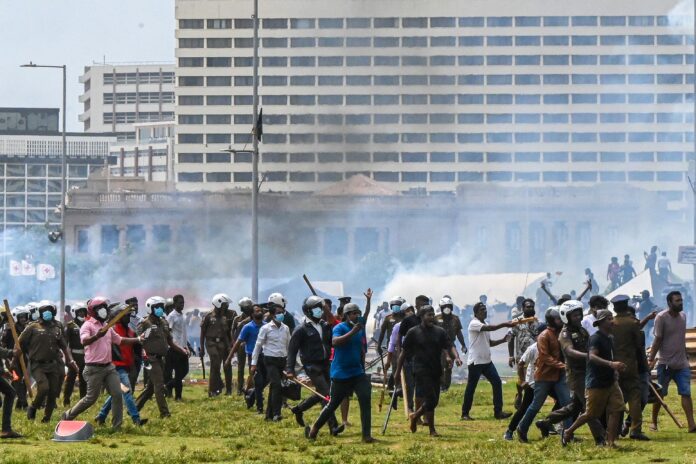| Translate This News In |
|---|
Many Sri Lankans flocked to buses in the capital, Colombo, on Thursday to return home, with political leaders expected to meet after the Prime Minister resigned and went into hiding, and President Gotabaya Rajapaksa threatened anarchy.
After officials lifted an indefinite curfew at 7 a.m., hundreds of people flocked to the commercial capital’s major bus station. At 2 p.m., the curfew will be re-enforced.
On Monday, supporters of former Prime Minister Mahinda Rajapaksa, the president’s elder brother, stormed an anti-government demonstration camp in Colombo, the island nation’s worst economic crisis since independence.
Days of bloodshed against government officials linked to the Rajapaksa clan ensued. The fights resulted in the deaths of nine individuals and the injuries of over 300, according to police.
Protesters defaced Mahinda Rajapaksa’s home in a southern town with graffiti and looted a museum dedicated to his father. They’ve promised to keep protesting until the president steps down as well.
After the fighting broke out, Mahinda Rajapaksa resigned and took refuge in a military facility in the country’s northeast. His brother claimed on Wednesday that he will select a new prime minister and cabinet this week “to avoid the country from devolving into anarchy as well as to keep the government’s operations running.”
The streets of Colombo’s main city remained quiet on Thursday, with only a few individuals venturing out to buy critical supplies. Later that day, political party leaders were scheduled to meet with the country’s speaker of parliament to discuss the present situation.
President Rajapaksa has frequently asked for a unity government to help resolve the problem, but opposition leaders have said they will not serve until he resigns over his handling of the crisis.
The island nation is in the midst of its biggest financial crisis since independence in 1948, thanks to the pandemic, rising oil prices, and tax cuts by the populist Rajapaksa government.
Useable foreign reserves are as low as $50 million, inflation is out of control, and fuel shortages have prompted thousands of people to go to the streets in more than a month of anti-government protests that had been mostly calm until Monday.
Failure to find a solution to the problem in the next one to two weeks, according to Sri Lanka’s central bank governor, may result in power cuts of up to 10 to 12 hours per day, as well as his own departure.


















